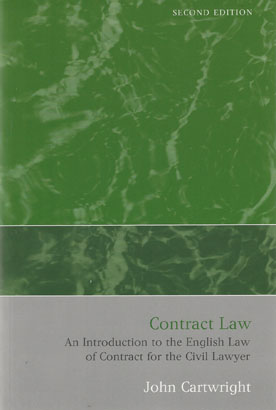
This book provides an introduction to the English law of contract. In this new and fully updated edition the book retains the primary focus of the first edition, offering an explanation of the rules of the English law of contract which is accessible to the lawyer trained in a civil law jurisdiction who already has an understanding of a different law of contract.
But, setting English contract law generally in the context of other European and international approaches, the book also serves as an introductory text for the English student, who can see not only how English contract law works but also get a glimpse of different ways of thinking about some of the fundamental rules of contract law.